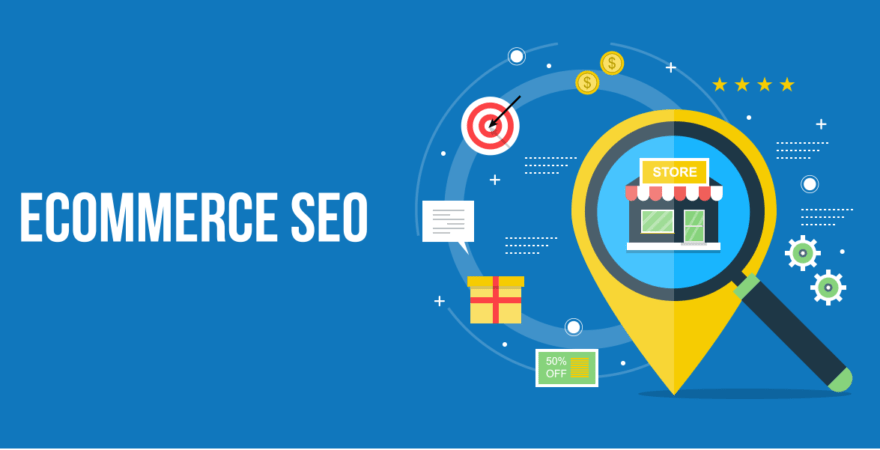
In today’s rapidly changing digital landscape, maintaining a strong online presence is essential for your e-commerce business. To stand out from the competition and improve your visibility, optimizing your e-commerce site for search engines is crucial. Search engine optimization (SEO) remains a key pillar of digital marketing and, when executed correctly, can boost your traffic, elevate brand awareness, and drive higher revenue.
This guide from MHD Digital Technology will offer actionable SEO strategies to improve your website’s visibility, attract organic traffic, and boost sales.
Essential SEO Tips for E-commerce Success
Below are proven strategies to enhance the SEO of your e-commerce website in 2024:
1. Conduct Keyword Research with SEO Tools
Start by identifying the right keywords and phrases that align with your products and target audience. Effective keyword research is the foundation of a successful SEO strategy. Use tools like:
These tools can help you discover high-traffic, low-competition keywords that will guide your content creation and SEO efforts.
2. Optimize Product Pages for SEO
Optimizing product pages is crucial for driving organic traffic and conversions. Ensure each product page includes optimized titles, compelling meta descriptions, and unique product descriptions. Naturally incorporate relevant keywords without overstuffing. Additionally, high-quality images not only enhance user experience but can also improve rankings when you optimize the image alt text.
3. Create High-Value Content
Beyond product pages, producing valuable content like blog posts, guides, and tutorials can significantly impact your SEO. Content marketing is a powerful tool for reaching your audience organically. Writing informative blog posts related to your products or industry will engage visitors and position you as an authority. Optimize these posts for relevant keywords to improve search rankings. Stay updated on the latest SEO trends by following industry websites, YouTube channels, and digital marketing journals.
4. Improve Site Structure and Navigation
An intuitive and user-friendly website structure is essential for both users and search engines. Clear navigation, category pages, and internal linking can improve user experience and help search engines crawl your site more effectively. Implementing breadcrumb navigation and ensuring all pages are easy to find will also enhance SEO performance.
5. Focus on Mobile Optimization
With mobile devices accounting for a large portion of online traffic, optimizing your e-commerce site for mobile is a must. Mobile optimization improves:
- Conversion rates
- User experience
- Customer engagement
- Time spent on your website
- Digital visibility
Ensure your site is mobile-friendly with responsive design, fast loading times, and a seamless user experience.
6. Optimize Page Speed
Page speed is a crucial ranking factor for SEO. A slow website can lead to higher bounce rates, fewer page views, and reduced conversions. To improve your website’s speed, use tools like:
- Google PageSpeed Insights
- GTMetrix
- Pingdom
- WebPageTest
Optimizing your site’s loading times will not only improve user experience but also boost search engine rankings.
7. Utilize Rich Snippets with Structured Data
Incorporating structured data, such as Schema.org, can provide search engines with additional information about your products, such as price, availability, and reviews. Implementing rich snippets can make your search listings more informative and appealing, improving click-through rates. Benefits include:
- Higher search engine rankings
- Improved brand trust
- Enhanced user experience
- Competitive edge over sites without rich snippets
8. Build High-Quality Backlinks
Backlinks from authoritative websites can significantly boost your site’s SEO. Aim to build natural, high-quality backlinks through:
- Guest blogging
- Influencer outreach
- Content partnerships
These links will increase your site’s authority and credibility, improving search engine rankings.
9. Leverage Social Media for SEO
Social media can indirectly support your SEO efforts. Use platforms like Instagram, Facebook, and LinkedIn to increase brand visibility, engage with your audience, and drive traffic to your website. Social media activity can also contribute to improving your search engine rankings by:
- Boosting brand searches
- Increasing organic clicks
- Enhancing on-site engagement
- Strengthening local SEO
By integrating social media with your SEO strategy, you can expand your reach and enhance your brand’s authority.
10. Monitor and Analyze SEO Performance
Regularly tracking your SEO performance is key to refining your strategy. Tools like Google Analytics and Google Search Console allow you to monitor important metrics such as keyword rankings, organic traffic, conversion rates, and user behavior. By analyzing this data, you can identify areas for improvement and adjust your SEO efforts accordingly.
Conclusion
Implementing these SEO tips will help boost the visibility of your e-commerce website in 2024, drive more organic traffic, and ultimately increase sales. Remember that SEO is an ongoing process, so regularly monitor and refine your strategy to stay competitive and achieve long-term success.
Read More
Leave a Reply


